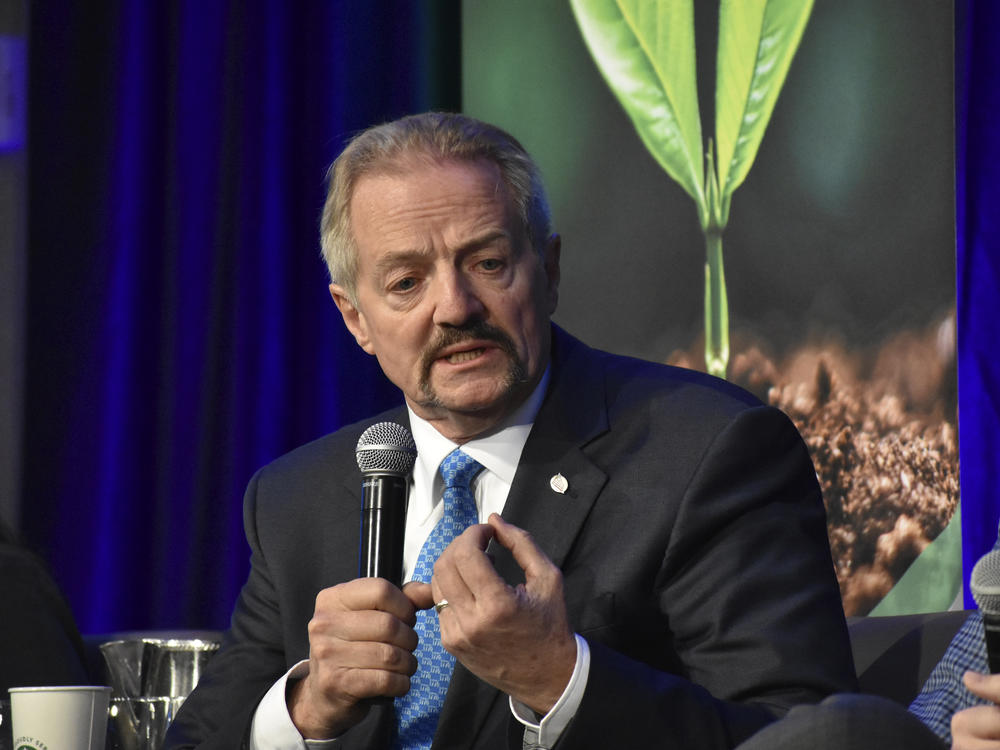Section Branding
Header Content
Trump To Appeal Removal Of 'Polarizing' Public Lands Chief
Primary Content
The Trump administration says it will comply, for now, with a federal court ruling that blocks William Perry Pendley from continuing to serve as the temporary head of the Bureau of Land Management.
The court sided with Montana Gov. Steve Bullock, who argued that Pendley's continued appointment violated federal law because he had never been confirmed by the U.S. Senate. Pendley ran the Department of Interior agency — which controls who gets to do what on roughly 10% of all the land in the United States — for more than a year via a series of controversial contract extensions.
In statements to NPR, the Trump administration said an appeal is planned but no timeline has been given.
"The Department of the Interior believes this ruling is erroneous, fundamentally misinterprets the law and unreasonably attempts to up-end decades of practice spanning multiple presidential administrations from both parties," said DOI soliciter Dan Jorjani in a statement.
Even though Pendley has been leading the agency since Aug. 2019, his official title has remained deputy director of policy and programs.
Jordani said Pendley neither received Senate confirmation nor was he serving as an acting director and therefore his appointment was not in violation of the Federal Vacancies Reform Act, which bars acting agency officials from serving for more than 210 days.
Nevertheless, the shuffling of temporary appointments and non-confirmed agency directors has been a hallmark of the Trump era. Democrats have likened it to a shell game where the president can keep close control over his appointees while skirting Senate oversight, as is required by the Constitution.
Even so, Pendley's appointment drew some of the most intense scrutiny due to his controversial past writings and legal work as head of the Colorado-based Mountain States Legal Foundation. He was seen as a sharp and successful litigator who represented industry and rural counties in court challenges to the agency he would go on to lead.
Pendley, whose Twitter handle is "Sagebrush Rebel," has also sympathized with scofflaw ranchers that led armed rebellions against the federal government. And as late as 2016, he called for selling U.S. public lands to states.
In the West, support for federal public lands frequently cuts across party lines, with politicians touting their records on everything from hunting access to federal wilderness protections.
Amid mounting political pressure, Trump withdrew his late hour nomination of Pendley in June. A vote would have put several western Republican senators in an awkward bind, including Montana's Sen. Steve Daines. He's in a tight race with the state's governor, Steve Bullock, who filed the lawsuit.
The proposed sale or wholesale transfer of public land has lately been a key issue for voters in Montana — a state that could help determine whether Democrats take over the Senate next year.
"If there is one thing that does matter to Montanans, universally, it's protecting public lands," said Dave Parker, a Montana State University political scientist.
But Parker doubts the ruling will dramatically change the dynamics in that state's Senate race, though he predicted Bullock could get a boost with independents, and anticipates campaign ads showing his success in ousting Pendley.
For now, it appears Interior Secretary David Bernhardt is officially back overseeing the BLM's department-wide operations, though Pendley is still working at the agency while the administration reviews "all legal options."
Conservation groups have argued that the court ruling effectively nullifies any official public lands management decisions made by Pendley since he was installed late last summer.
"Keeping him in any management position at the Bureau only underscores this administration's contempt for the law and the balanced management of all Americans' public lands," said Tracy Stone-Manning of the National Wildlife Federation.
Copyright 2020 NPR. To see more, visit https://www.npr.org.

